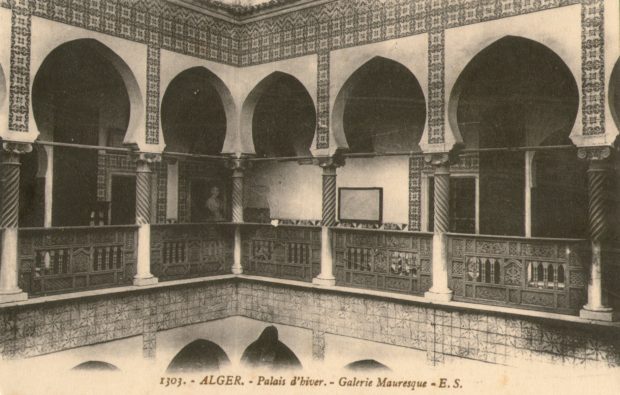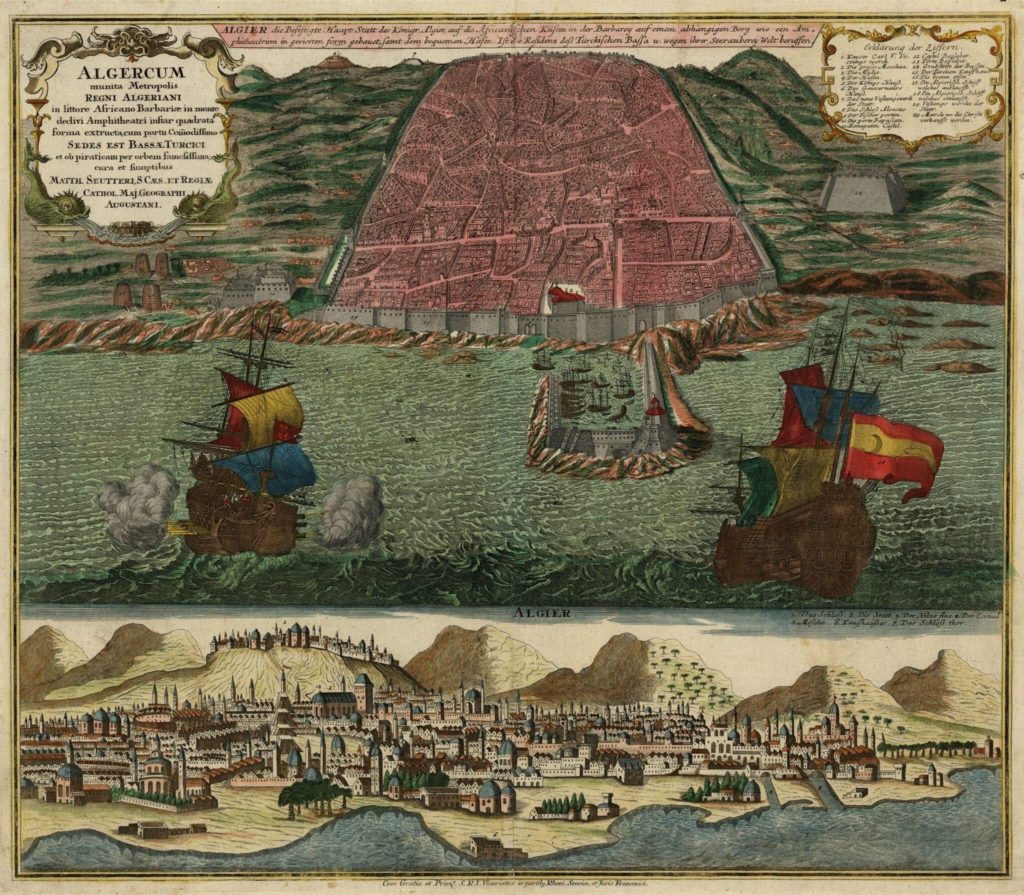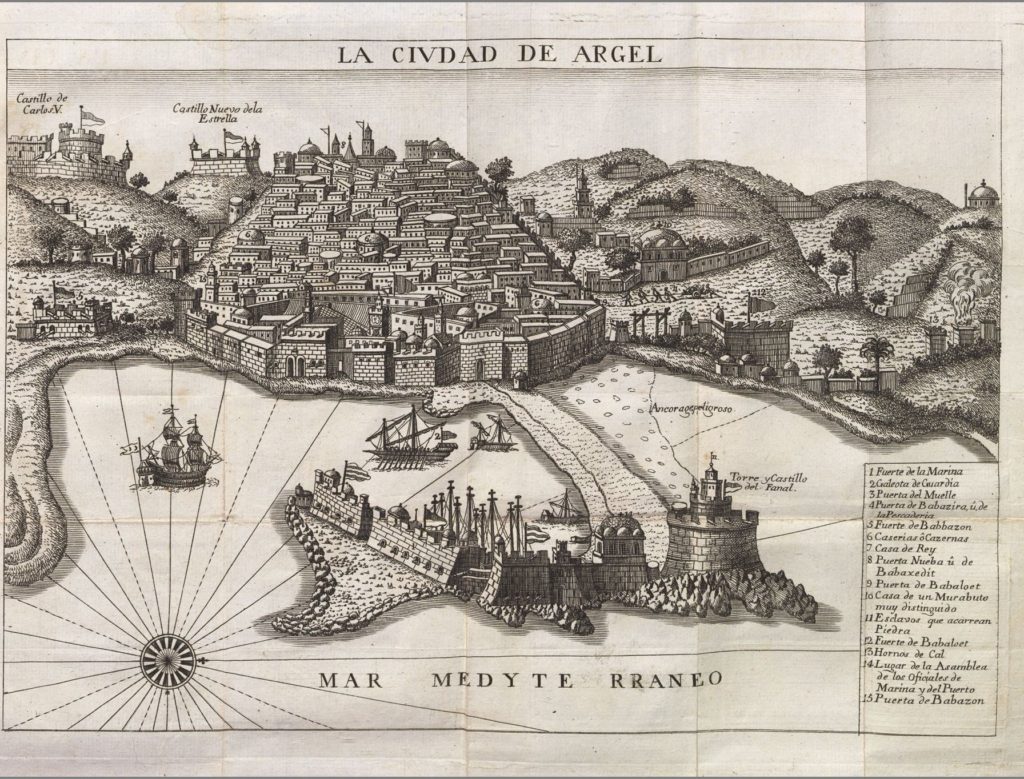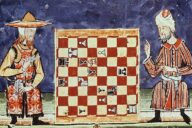Ann Thomson, professor at the European University Institute, reflects in this article on some early attempts at countering Islamophobia in the 18th century, in a context of confrontation with the Ottoman Empire and tensions with Algeria. The article was originally published at the Voltaire Foundation, associated to the University of Oxford.
The most widespread European attitude towards Islam and the Muslim world in the eighteenth century was one of hostility. Islam was of course the main challenger to Christianity, and in the early part of the century the Ottoman Empire was still an ever-present threat in the Mediterranean. So it was an object of both fear and suspicion. But in some quarters there was less hostility. The toleration of religious minorities in the Ottoman Empire was contrasted favourably with the religious persecution in many European countries, with the Catholics often being singled out as much more intolerant than the Muslims. Irreligious thinkers sometimes used this to attack all Churches.
The toleration of religious minorities in the Ottoman Empire was contrasted favourably with the religious persecution in many European countries, with the Catholics often being singled out as much more intolerant than the Muslims.
Several people who had direct experience of the Muslim world also gave a more nuanced opinion, admitting, like Thévenot, that the ‘Turks’ had some good qualities. There was even a small group of writers who went much further and actively tried to counter European prejudices against Muslims. One of these was the Frenchman Jacques Philippe Laugier de Tassy, who had a long career in the French Ministry of the Marine, beginning in 1699. We do not know much about him. In 1717 he was appointed Chancellor at the French consulate in Algiers. In 1720 we find him ‘Commissaire de la Marine’ (in fact consul) in Amsterdam, where he stayed until his death in 1748. He seems to have been highly respected, apparently earned the confidence of the Dutch, and received several honours.
In 1725 he published in Amsterdam a Histoire du Royaume d’Alger, apparently, according to his own account, to satisfy curiosity about that country. As one would expect, he gave an account of its history and government, together with a description of the inhabitants, their customs, religion and so on – all based on his own observations and generally quite fair-minded and impartial. This in itself is quite surprising. For not only was he a career diplomat (even if that did not mean the same in the early eighteenth century as it does today) but, in addition, Algiers was the most hated of the North African states. It lived by piracy, attacking European shipping in the Mediterranean and abducting and ransoming their passengers. Its government and army, usually said to be composed of the dregs of the Ottoman Empire, were seen as particularly violent, aggressive and intractable. Travellers and diplomats much preferred the Tunisians.
But Laugier went further than simple description. He says openly in the Preface to his work that he has written it to counter European prejudices against the Muslims, which, he says, are so terrible ‘qu’ils n’ont point d’expressions assez fortes pour faire voir le mépris et l’horreur qu’ils en ont’. For him, European prejudices prevent them from judging Muslims by objective standards.
He even writes: ‘je suis persuadé que si ces mêmes personnes pouvaient converser sans le savoir avec des Mahométans qui n’eussent point le turban et qui fussent habillés à la manière des chrétiens, ils trouveraient dans eux ce qu’on trouve dans les autres peuples. Mais s’ils avaient le Turban, cela suffirait pour les faire opinionâtrer dans leurs préventions.’
He issues a plea to judge others by objective standards, to recognise the good and bad in them.
He issues a plea to judge others by objective standards, to recognise the good and bad in them. He says he has no great sympathy for the Muslims but he underlines their fair treatment of Christians, who are free to practice their religion. He particularly attacks the Trinitarian Monks who went to ransom the Christian captives, generally referred to as slaves, and wrote works of propaganda full of lurid accounts of the terrible ill-treatment and suffering of the Christians, particular in Algiers. Perhaps this reflects a Protestant sensibility, due to Laugier’s years in Amsterdam, but that is speculation. In any case, his work was quite widely read, translated into English, and used as a source of information by Montesquieu. But it doesn’t seem to have had much effect on Europeans’ attitudes to the Muslim world. Hostility to the Turks increased over the century, as the threat they posed lessened, and anti-Muslim prejudice today is as strong as ever. But a voice like Laugier’s, calling for a fairer judgement, perhaps still has something to say to us today.
Source: Voltaire Foundation

















No Comments